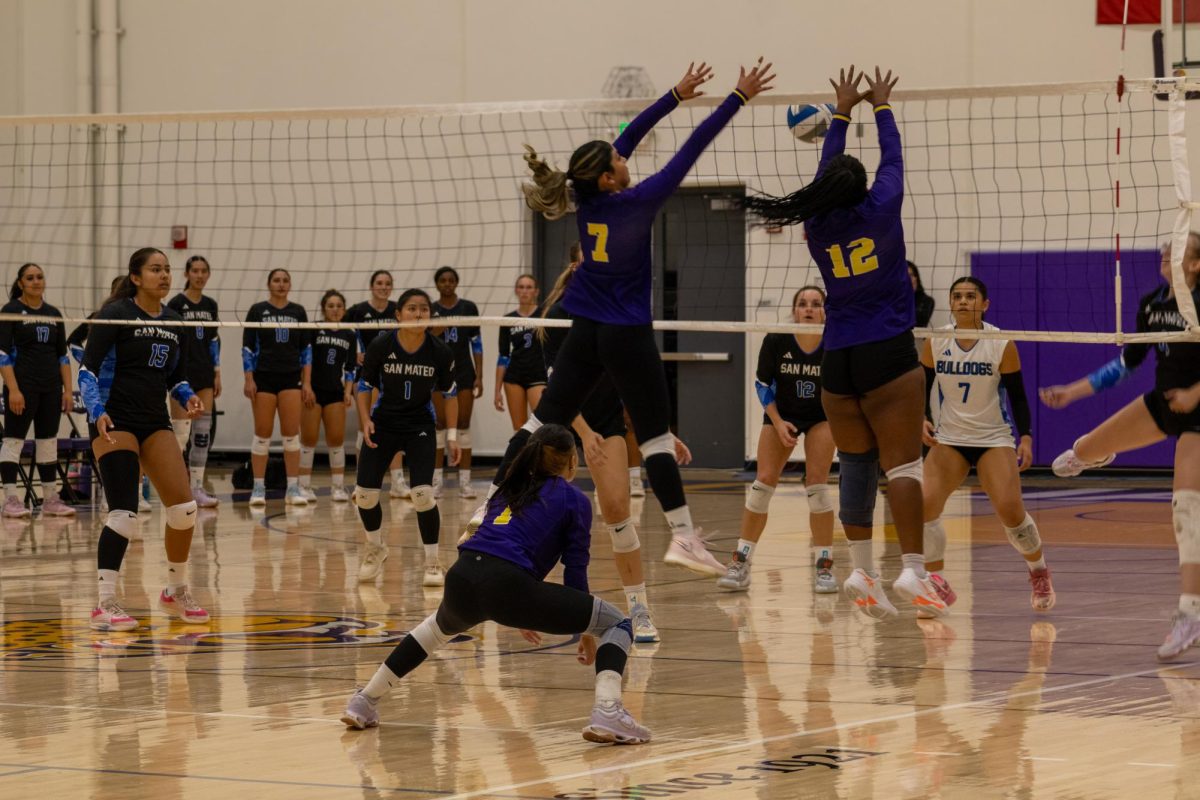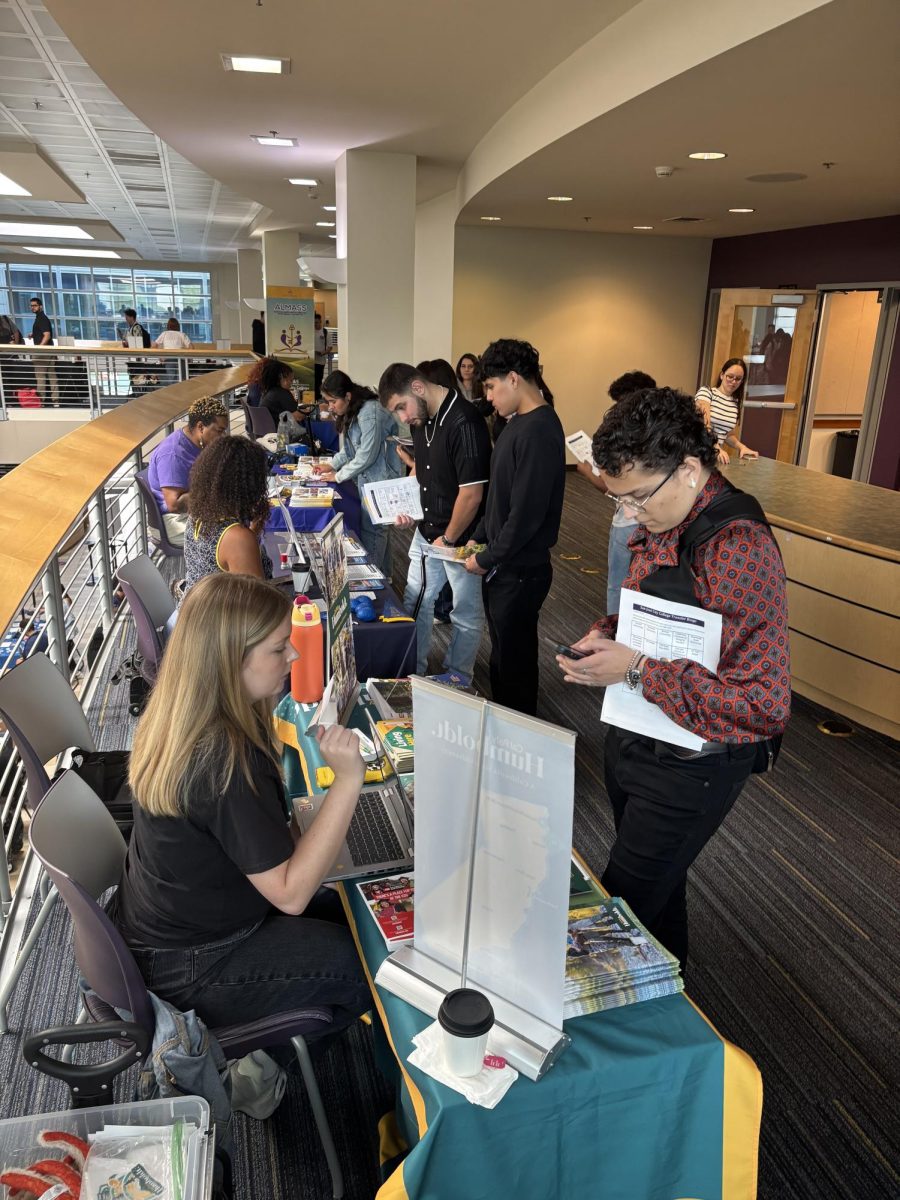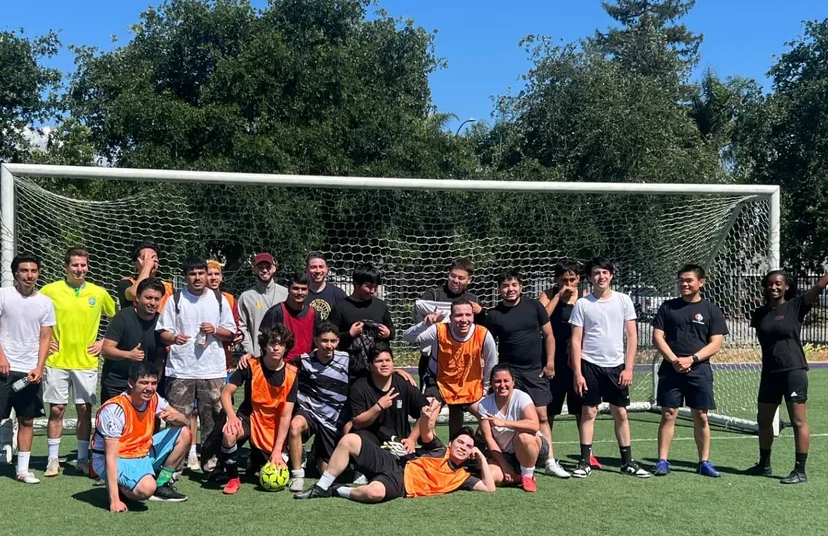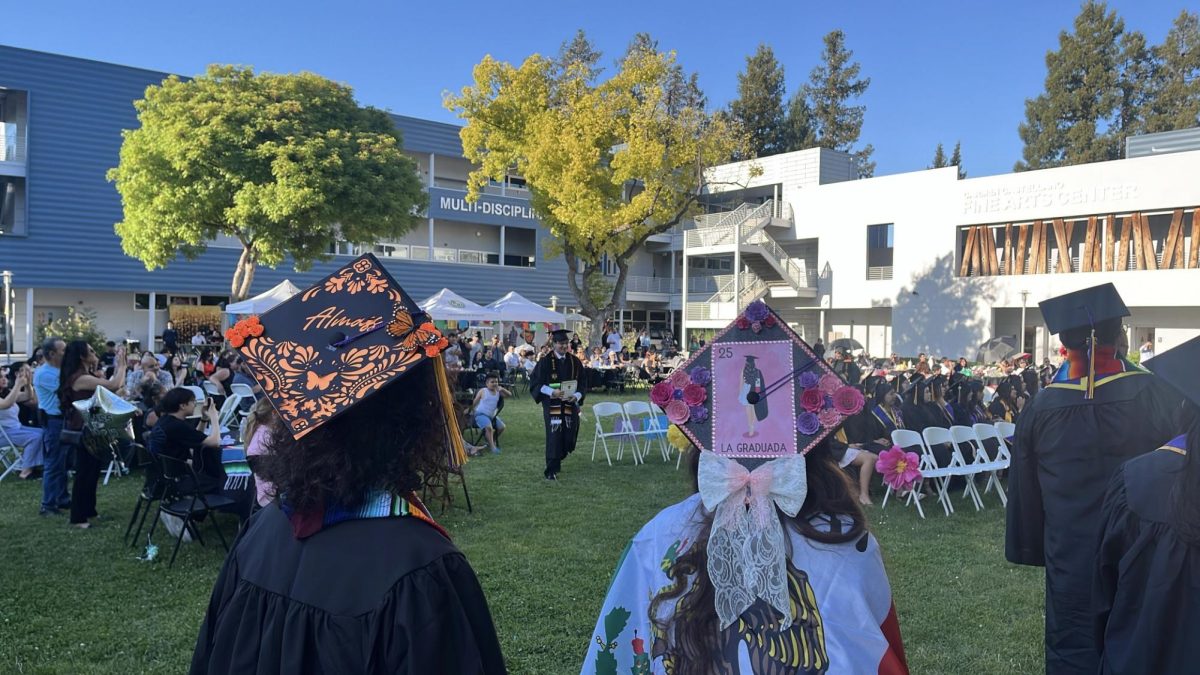Breland shares his love for community colleges
When you step into the president’s office, the temporality of his position becomes immediately apparent. Papers are strewn across his desk, the area that would usually be occupied by an administrative assistant is empty, and the president can’t help but laugh at the mention of free time. Still, there is a lot of work to be done at San Jose City College and the newly appointed interim President Byron Breland believes he’s the man for the job.
Breland had been immersed in academia from a young age, when his mother helped foster his appreciation for education by taking him with her to her own classes. In addition to having four degrees, Breland has worked at several two-year and four-year institutions in Southern California in varying capacities. His work has ranged from teaching eighth grade to facilitating conferences, and everything in between.
Breland is also a founding member of the African American Male Education Network and Development (A²MEND), a non-profit organization that provides mentoring, scholarships and workshops, among other things, to African American males. The group has hosted several conferences attempting to address the challenges faced by underrepresented groups in breaking into academia and achieving personal success.
“I see a tremendous amount of potential here,” Breland said. He emphasized the need to really stress the community aspect of community college. More than four-year institutions, Breland prefers working at community college, where he believes his background could be more useful to a larger population of students from more diverse backgrounds.
“I feel like there are a lot of success stories at community colleges, not just about school but about survival,” the president said. Breland pointed out that in order to survive in today’s economy, it’s crucial for students to be able to get a degree and job training.
“It’s about an organizational and cultural shift in terms of how we educate the members of our community,” Breland said. He believes this means working with the school’s K-12 partners so students are better able to transition into the college environment and complete their education in a timely manner, whether that means leaving SJCC with job opportunities or transferring to a four-year university.
The president said he wants to work on stabilizing the staff and help better define the community at the college by recruiting individuals dedicated to the campus. In addition, he’s hoping to create a network with local businesses and community members to ensure students engaged in job training can find employment at the conclusion of their educations.
“He really seems to be someone who knows what he’s doing,” said third-year SJCC student Bihama Vedaste, 23, who has worked closely with the president since his arrival in June. Vedaste believes what has been lacking at the college is a student-driven purpose. According to Vedaste, the school often shifts its focus between trying to maintain the faculty and help the students, but he has high hopes for Breland.
The current president’s contract only extends to May 2014, when he will be re-applying for a permanent position. Will it be possible for him to make meaningful change in the meantime?






